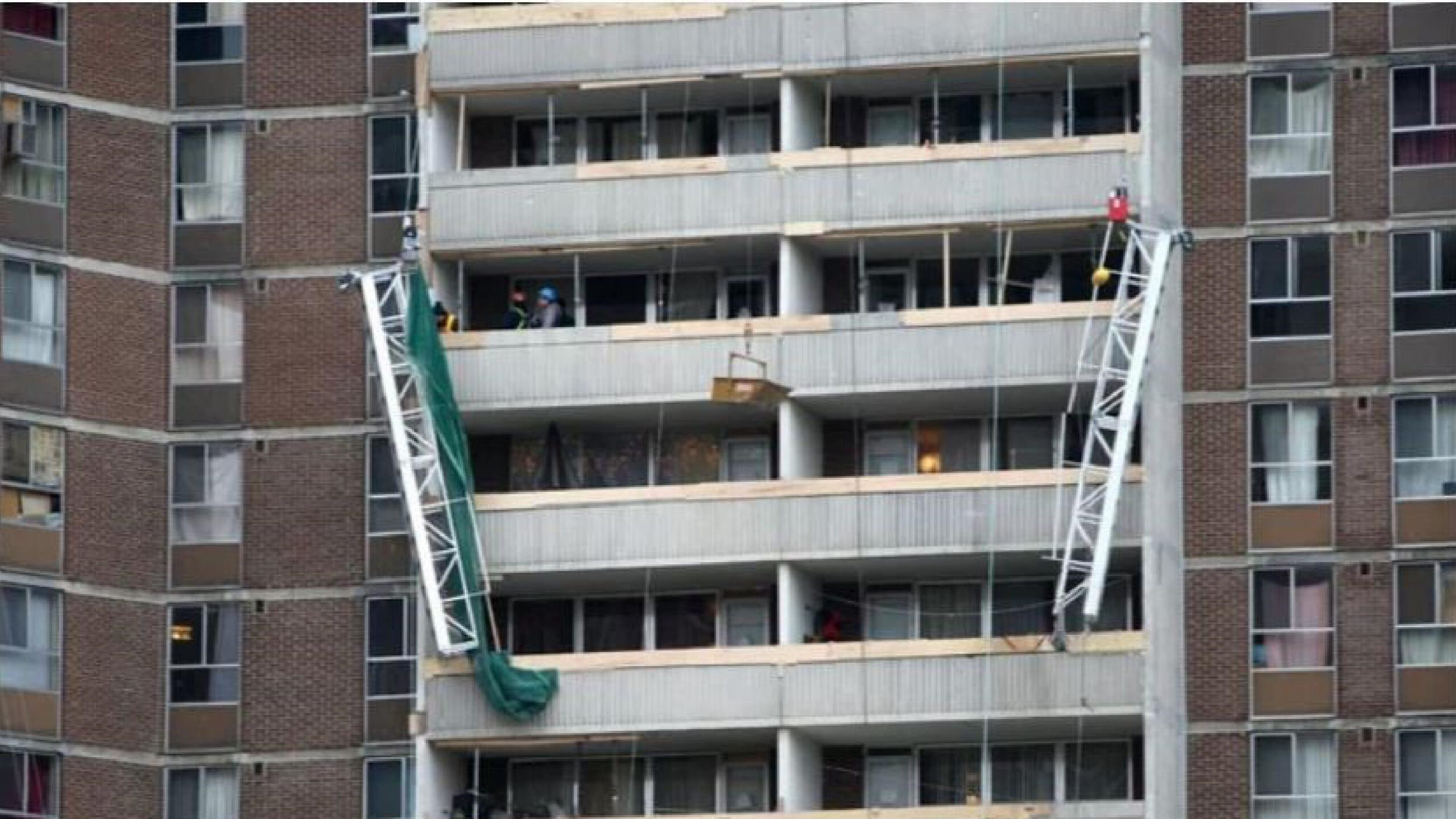An Ontario Coroner’s inquest into the deadly 2009 collapse of a swing stage that killed four workers made seven recommendations to improve worker safety.
The jury’s recommendations include more mandatory training, amending notification requirements, proactive study of new technology, training requirements for supervisors working at heights, tracking effectiveness of training programs, additional penalties for violations, and mandatory training refreshers for suspended equipment.
Alexsandrs Bondarevs, 24, Fayzullo Fazilov, 31, Aleksey Blumberg, 38, and Vladimir Korostin, 40, fell 13 floors to their deaths on Dec. 24, 2009, when the swing stage they were on collapsed at a Kipling Avenue apartment building near Steeles Avenue.
A fifth man was critically injured in the fall but survived and a sixth was saved by a safety line.
Jai Dhar, the coroner’s counsel for the inquest, said because of the gap in time between the incident and the inquest, and the case’s high profile, the inquest had to be very focused.
He said the evidence the jury hears has to be relevant, has to arise out of the circumstances of the incident, “and it can sometimes be a challenging exercise.
“It’s a retrospective exercise in the sense that you’re looking back at an incident that happened, but it’s very much meant to be a forward-looking exercise also, trying to determine what can be learned from this incident to help prevent something like this from happening again,” Dhar sai,
Investigations were launched by the Toronto Police, the City of Toronto, and the Ontario Ministry of Labour.
Investigators found the swing stage was faulty and there were only two lifelines available for six people.
Project manager Vadim Kazenelson, was sentenced to 3 ½ years in prison for multiple accounts of criminal negligence. The construction company Metron Construction Corp, its owner Joel Swartz, and the supplier of the scaffold, Swing N Scaff Inc, were all fined.
The five-day inquest, presided over by Coroner Dr. John Carlisle, began Jan. 31.
Experts were called to discuss what safety regulations have been implemented since the incident. The jury declared the incident an accident and made seven recommendations.
The inquest was originally scheduled for May 2020 but was delayed due to the COVID-19 pandemic.
Dhar said the length of time between the incident and the inquest was also due to the large number of investigations, trials, appeals, and litigation that followed the incident. An expert panel recommended 46 changes to the Ontario Health and Safety Act in 2010 all of which were accepted.
“The recommendations from that panel resulted in many changes to the structure of the way health and safety is regulated in Ontario,” Dhar said.
He said despite the long wait, the inquest still needed to determine if enough had been done to prevent similar incidents or if more was needed.
“So we really want to make sure that we put forward evidence that’s relevant, and that’s appropriate in circumstances,” Dhar said. He said the information had to be framed in a way it would to understand the circumstances and the context, so that it would make meaningful recommendations.
The Ministry of Labour said in an email it is reviewing the coroner’s jury recommendations and how they may support the significant investments and steps already taken to improve safety upgrades for working at heights safety implemented since 2009.
Dhar said the ministry has six months to give an update as to whether they will apply any of the recommendations, which are not mandatory.

